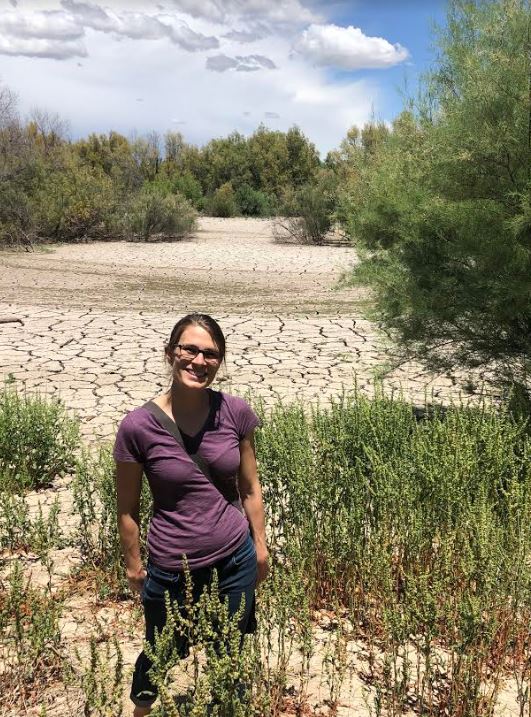Greetings from the depths of self-isolation and quarantine! We are back again with our final interview of the academic year with MSU alumna Dr. Jennifer Vollner, D-ABFA. Dr. Vollner is a forensic anthropologist for the Pima County Office of the Medical Examiner (PCOME) in Tucson, AZ. Her duties include assisting the medical examiners with skeletal trauma cases and unidentified decedents.

The PCOME is a busy office serving three counties in southern Arizona, leaving Dr. Vollner with little time for her own research. Although she has a lot of ideas for future projects, Dr. Vollner is currently working on a proposal to exhume and reanalyze unidentified decedents originally examined during the 1960s-1990s, applying modern methods of forensic identification. Her training at the MSUFAL, in particular the research on medieval skeletons with Dr. Fenton in southern Italy, helped Dr. Vollner identify small fragments of human bone and skeletal stress indicators. These skills have proven very useful when examining cases involving undocumented border crossers at the PCOME, as many cases that enter the office have been exposed to the harsh desert environment for a number of years. Additionally, Dr. Vollner’s experience with active casework at the MSUFAL allowed her to get comfortable working as a forensic anthropologist within a medical examiner setting prior to her current position.
Dr. Vollner first became interested in forensic anthropology through frustration at the slow research pace in genetics. She wanted to provide important answers that were useful to people in the moment; a void that forensic anthropology filled. During her undergraduate education at Mt. St. Joseph University, she found a mentor in Dr. Elizabeth Murray D-ABFA. Dr. Murray cautioned her of the difficult road and sometimes dismal job market within the field, but Dr. Vollner was undeterred. Guided by a list from Dr. Murray of forensic anthropology-centered graduate programs, Dr. Vollner leapt forward never looking back. She is grateful for her relationship with Dr. Murray and the advice she receives, even if she doesn’t always follow it.

Many interns at the PCOME have been students interested in forensic anthropology. As a result, Dr. Vollner is often asked for her advice on graduate school and career opportunities in the field. Because graduate school can take longer than anticipated and each step in the process of getting a job is harder than the last, she advises students to ask themselves why they chose forensic anthropology and if there is another career trajectory that will satisfy their goals. Getting that same speech herself, Dr. Vollner acknowledges that after many years of hard work and sacrifice, she landed her dream job (and many other people’s too…), but that isn’t always the case.
Apart from late-night dancing to 80s cover band, Starfarm, and the beautiful autumn weather that Lansing offers, Dr. Vollner’s fondest memories were with Dr. Carolyn (Hurst) Isaac and Dr. Fenton in Italy. She remembers one trip where Dr. Fenton’s suitcase got lost and Dr. Isaac and Dr. Vollner helped him shop, giving him thumbs up or down as he tried on new Italian-style shirts. Dr. Vollner appreciates her time spent abroad researching in Italy and teaching the study abroad course in London. She loves seeing former students at the annual American Academy of Forensic Sciences meetings.
Thank you Dr. Vollner for sharing your experience and insight with us! We look forward to seeing you again when we are allowed to leave our quarantine caves and put on our outside sweatpants.
Authored by: Kelly Kamnikar
Leave a Reply